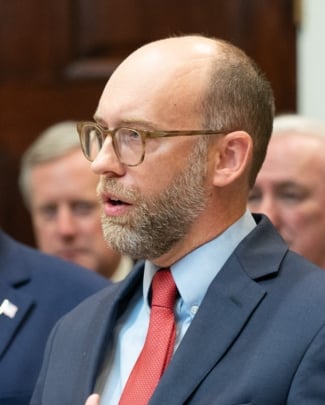WHY YOU SHOULD NEVER CALL BACK AN UNKNOWN NUMBER
FAITH IS THE FUEL OF OUR PRAYERS
YOUR NOTES TO THE PRESIDENT ARE ON THE WAY TO THE WHITE HOUSE
CHINA BANS U.S. MILITARY FROM HONG KONG BECAUSE OF “BULLYING”
YOUR INPUT NEEDED–TRUMP PROPOSES FED MONEY FOR FAITH-BASED ADOPTION...
WHY YOU SHOULD NEVER CALL BACK AN UNKNOWN NUMBER
(Editor’s note: This article doesn’t directly relate to praying for the nation, but it does relate to our concern for IFA intercessors. We want you to be educated and able to protect yourselves from the prevalent scams, particularly those preying upon senior citizens.)
We’ve all had it happen: You look at your phone and notice a missed call from a familiar-looking number that isn’t in your contacts. Your first instinct might be to call back and see who it was, but that’s the last thing you should do.
You might assume calling back is safe because a number happens to be from your area code. Is it your doctor? Your kid’s principal? A neighbor? Unfortunately, the answer is probably none of those, says Adam Levin, founder of CyberScout and author of Swiped: How to Protect Yourself in a World of Scammers, Phishers, and Identity Thieves. Scammers ‘are adept at spoofing phone numbers for caller ID purposes,’ he says. So just because a number shares your area code doesn’t mean the caller is from your town. Crooks purposely use familiar area codes to gain your trust. Don’t miss these other sneaky ways con artists win your trust.
You’d probably ignore an 800 number, but a number that comes from your hometown seems more likely to be someone you know. ‘People are curious and they’re counting on that,’ says Levin. ‘It’s the concept that people think may have missed an important call.’ At the very least, answering the phone or calling back makes you vulnerable to future scams, says Eva Velasquez, CEO and president of Identity Theft Resource Center. ‘When you call back not only are you verifying the number is attached to a real person but that you’re willing to make the effort in calling back an unknown number,’ she says. ‘This puts you at risk for scammers to call you at a different time and try to scam you with another ploy.’
For one thing, scammers could convince you to give out personal information, like your credit card or Social Security number. Even if you don’t give out personal information to the other line, though, that call could cost you major money. The numbers are sometimes hooked up with 900 numbers such as sex lines that charge by the minute—and it adds up fast, says Levin. ‘You’re paying $17 and change for the first minute, and $9 and change for every minute after that,’ he says. Plus, even just answering this four-word phrase phone scammers use with a one-word reply could let them steal your money without asking for more information. In general, you’re better off ignoring an unknown number and forgetting about it, says Velasquez. ‘Any important news will be left in your voicemail,‘ she says. Be careful even if the person does leave a message, though. Just like scammers can pose as a credit card company when you answer, they can leave an important-sounding voicemail, too. So if your bank leaves a voicemail, don’t just call back the number from the missed call. Find the official number online and dial that, suggests Levin. ‘Never trust—always verify,’ he says. Watch out for these other phone call scams that could steal your money
(Excerpt from Reader’s Digest. Article by Marissa Laliberte.)
Partner with Us
Intercessors for America is the trusted resource for millions of people across the United States committed to praying for our nation. If you have benefited from IFA's resources and community, please consider joining us as a monthly support partner. As a 501(c)3 organization, it's through your support that all this possible.


We use cookies to ensure that we give you the best experience on our website. If you continue to use this site we will assume that you are happy with it. Privacy Policy




Comments
When calling an actual number for a trusted business, while ringing the call is redirected to another number. When they answer you think it is that business and they are offering some special deal. Then they ask for your credit card number.
I had this happen when calling a credit union.